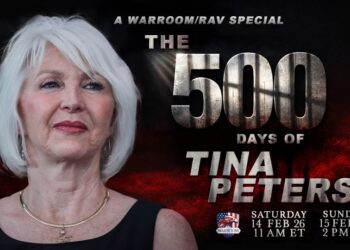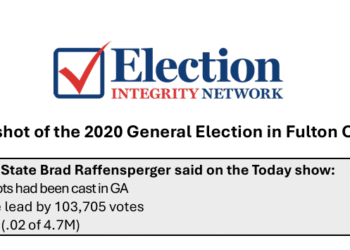Marc Elias, the Democratic attorney, faced backlash on Wednesday’s WarRoom for labeling Steve Bannon a “felon.” This statement is not only misleading but also defamatory. Bannon served time for a misdemeanor, not a felony. In this discussion, we explore Bannon’s response to Elias’ claim and the implications of such defamatory statements in the political arena.
Resources for this article:
Stephen K. Bannon’s Attorney Statement Regarding Court of Appeals Decision
Mark Elias just referred to Steve Bannon as a convicted felon.
Bannon was convicted of a misdemeanor.
Mistake or just another Democrat lie?
I'm pretty sure Elias knows exactly what Steve's charge was. pic.twitter.com/5om9ohPDyA— Bluegrasspatriot (@kylawndog) October 30, 2024
Marc Elias’ Controversial Statement
In a recent interview on corporate media, Marc Elias referred to Steve Bannon as a “felon,” igniting a fierce backlash from Bannon and his supporters. Given the political climate, this label is particularly damaging. It undermines Bannon’s credibility while also misrepresenting the nature of his legal issues.
Bannon has stated, "I am not a felon. I served time for a misdemeanor. It’s crucial to clarify the distinction.” This statement underscores Bannon’s determination to set the record straight against what he deems misinformation.
The Legal Distinction
A misdemeanor and a felony are vastly different in legal terms. Misdemeanors usually involve less severe penalties, while felonies have harsher consequences, including longer prison sentences and more significant impacts on civil rights. Bannon’s offense, defying congress, resulted in a misdemeanor charge, emphasizing the importance of legal accuracy in political discourse.
Bannon elaborated, "It’s not just about me. This is about the principle of truth in our legal system. Misinformation can lead to political persecution, and that’s dangerous.” His commitment to the truth highlights a broader issue of accountability among political figures.
The Backlash Against Elias
The fallout from Elias’ statement has not been limited to Bannon. Many in the political sphere have criticized Elias for his choice of words. Mike Davis, a political commentator, stated, "Marc Elias just got his ass kicked at the Supreme Court. He should know better than to throw around terms like ‘felon’ without proper context.” This perspective points to a growing concern about the potential legal ramifications of Elias’ defamation.
Bannon’s supporters have rallied around him, emphasizing the need for truthfulness in political discussions. They argue that such labels can not only tarnish reputations but also hinder fair political discourse.
The Political Ramifications
Defamatory statements like Elias’ can have far-reaching effects, especially in the heated atmosphere of American politics. Bannon’s case exemplifies how misinformation can be weaponized in political battles. It raises questions about ethics and accountability among political players.
Bannon remarked, "This is not just about me; it’s about the integrity of our political system. We cannot allow misinformation to dictate the narrative.” His call for integrity serves as a reminder of the responsibilities that come with public discourse.
A Call for Accountability
Elias’ use of the term "felon” against Bannon has brought to light the importance of accountability in political rhetoric. While the stakes are high in political battles, it is essential that figures like Elias adhere to factual accuracy. Mislabeling individuals can lead to significant legal repercussions, including defamation lawsuits.
Bannon’s assertion, "We must hold those accountable who spread misinformation,” reinforces the idea that political figures must be cautious about their statements. The line between opinion and factual reporting can often become blurred in heated political debates.
The Need for Truth
In conclusion, Marc Elias’ characterization of Steve Bannon as a “felon” is not just a careless remark; it is a significant legal misstep that undermines both Elias and the integrity of political discourse. Bannon’s response serves as a crucial reminder of the need for accuracy in political discussions. As the stakes in American politics continue to rise, truth and accountability have never been more critical.
Bannon’s resilience in the face of such accusations highlights the ongoing battle for truth in a landscape rife with misinformation. "We will not be silenced or mischaracterized,” he asserted, emphasizing a commitment to fighting back against defamatory rhetoric. This incident is a stark reminder that words matter, especially in politics.
For more context, watch those segments featuring the footage of Marc Elias’s comments:





